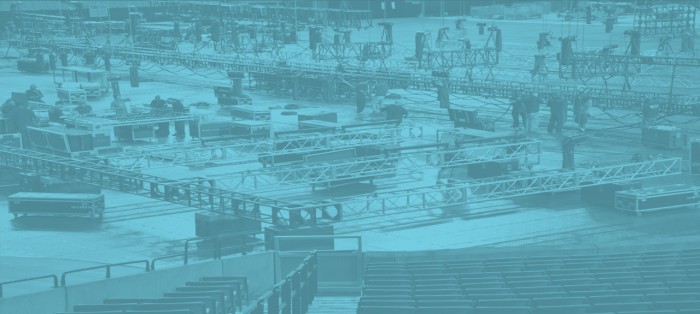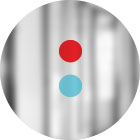Over the years, business meetings and events have turned into an art form. “Corporate theater” is designed to capture the attention and imagination of attendees, imparting knowledge while entertaining the crowd and inspiring action. Now, audiences have come to expect more and more from these annual or semi-annual gatherings; if you fail to wow them, then you’ve simply failed.
To be a success in the business meeting world, you need to balance consistency, efficiency and innovation … and it’s no easy task to accomplish. Take for example one of our long-term clients who was recently influenced by their procurement department to entrust a major national event to a well-known venue’s “in-house” audio visual team. Procurement thought it would be cheaper, citing “savings on hotel rooms and airfare for the crew” … “on-site local labor quote is less” … “no charges for creative direction and a producer.”
Here’s how it actually worked out:
- Yes, they did save on crew hotel and airfare, but they ended up with a local crew who did not have the time to familiarize themselves with senior management. Let’s just say rehearsals didn’t go so well as a result.
- The client contact, by default, became the general session line producer. Instead of being involved in discussions about content or coaching the other executives, he was trying to organize the crew, prepping for the next rehearsal or dealing with some other issue that would take him out of the room. This left senior management and the local crew to figure out what should happen next.
- Initially, the labor bid was less; however, the per-hour rate for technicians was almost 40% higher than industry standard. The venue-side person budgeting the show had no familiarity with the client and didn’t know the whole schedule of activities in the room, such as the 14-hour rehearsal day, which they estimated at eight hours. When all was said and done, the actual labor bill ended up being significantly over their initial quote.
Switch’s expertise in the creative development and production of meetings and events is a result of producing events in everything from bowling alleys to cornfields to domed stadiums. We’ve worked in venues from Northern Ireland to Saudi Arabia, from Sikeston, Mo., to Los Angeles. We have dealt with everyone from rock stars to grade school students. And the only consistency through all of these productions has been our core agency team, whose breadth of expertise allowed us to anticipate issues and meet every challenge. As a result, our average client relationships have existed 12 years or more.
Very simply, we know that these companies and the individuals that help make them run depend upon us to accomplish their goals and foster their success. Our staff takes this responsibility very seriously. We see our future tied directly to the clients’ success. This kind of cohesive vision is imperative with the partner you trust to deliver your most important messages to your most important audiences. Recently, I was talking to a hotel technician who worked on meetings for three different pharmaceutical companies in the same week, and he said in all sincerity “after a while they all run together.” I wouldn’t want to account my event’s success to that business model.
A typical traveling crew should include a show producer, a technical director, a video engineer/presentation expert and an audio engineer. These professionals should know as much about your event as they can, always striving for perfection and organization in both the production and relationships they build with your team.
The people with whom you work are the difference between an event that succeeds and an event that fails. A good partner will help you save time and money while ensuring your reputation builds as a result of a great meeting.
To learn more on what Switch’s Meetings & Events team can do for you, contact John Nickel at johnn@theswitch.us.














